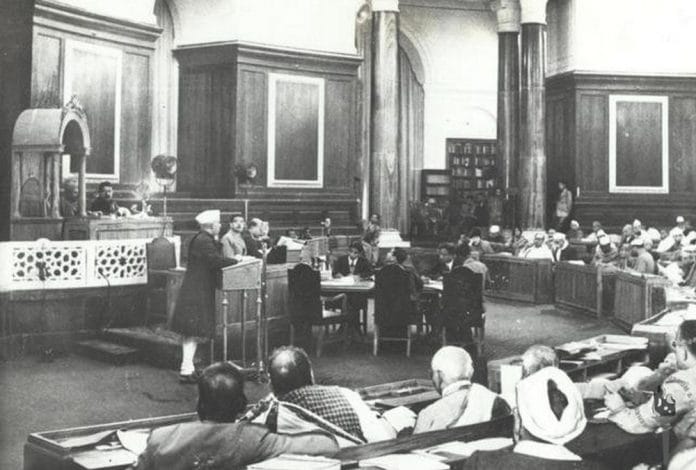The Constitution can provide only the organs of State such as the Legislature, the Executive, and the Judiciary. The factors on which the working of those organs of the State depend are the people and the political parties they will set up as their instruments to carry out their wishes and their politics.
— Grammar of Anarchy, Dr B.R. Ambedkar
A constitution is only as good as the people that work with it. Ultimately, the creators of the Constitution and the polity that followed it were and are people. So, at the end of the day, people shall be responsible for the State. At the same time, we cannot ignore the role of the Constitution in influencing its people. It is true that the general will of the people can change the face of the State, but it is also true that the Constitution sets a basic standard for governance that must be followed by the people.
On the 75th Independence Day of India, we witnessed the passing of the 127th Constitutional Amendment Bill for restoring the states’ power of determining Socially and Economically Backward Classes. With it, we shall have a total of 105 amendments to the Constitution, which is more than the number of years that the Constitution has existed. Many amendments have deeply hurt the rights of the citizens and have given unbridled powers to the government, and some have attempted to change the face of it.
Who is at fault for the poor state of affairs in the spirit and functioning of the State — the Constitution, or the people? The fault can be on both. On the Constitution because it does not create sufficient safeguards against dangerous or arbitrary amendments, and on the body politic for the abuse of the power to amend the supreme law of the land. But the former is the first deterrent towards the destruction of the State. I do not wish to create a misunderstanding here; indeed, under extreme circumstances, the polity may overturn the Constitution and construct a new State all together, but those are not the circumstances I speak of. I mean to shed light on the day to day of the State and the government. Moreover, I am aware of the power of judicial review, but that is the last resort and is only reactive in nature, not preventive.
Also read: Has India fulfilled its moral responsibility? The answers to this question are troubling
Is this good enough?
There is something odd in the general functioning of the government in India, and by “government” I mean the top executive branch, the Cabinet of Ministers. What is odd is that they are not just the executive branch, but also sit in the legislature. They seemingly control the actions of the President and, by extension, the governors (when they have been appointed by the ruling party). Separation of powers is a concept foreign to us since we adapted the Westminster system of government. We may say that the judiciary is separate, but to go further would be disingenuous. This construct is especially detrimental to people when a political party has a full majority in Parliament and control several major state governments as well. I need not name any specific party because the consequences that come with this power are only different in degree of adversity and not nature.
Could India have progressed faster if it was not for the current system of governance? Many would agree, but it is an infructuous question owing to the impossibility of proving it. Perhaps we can safely say that if we had considered the worst in our representatives rather than the best, we would have been better off. Not that the Constituent Assembly did not have the wisdom to create safeguards, but it the optimism with which the top executive was given powers, knowing very well that one political party would reign supreme in elections at the time, was uncalled for. The Supreme Court recently called upon eight major political parties to publish the criminal antecedents of their candidates on their respective websites — this itself should be enough to say that we should have never assumed that our representatives shall be the best of the best. It cannot be said that the constituents shall act as a deterrent to such improprieties either, since we do have elected representatives with criminal pasts.
Now that the stage has already been set, no ruling government would, in their right mind, relinquish the powers given by the Constitution. Perhaps this entire opinion is only an exercise on principles and cannot propose any change, but the question that I shall like to pose to the reader is this; after a quarter of a century of Independence and more than a hundred constitutional amendments later, are we content with the powers in the hands of our State?
Shaunak Choudhury is a student of SVKM’s NMIMS Kirit P. Mehta School of Law, Mumbai. Views are personal.






